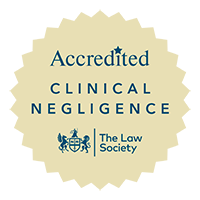Top ranked cerebral palsy claims lawyers

Cerebral palsy specialist, Susan Brown, has been recognised by Legal 500 and Chambers Directory for her expertise in maximum severity claims for more than a decade. In this article we asked Susan about one of the most important concerns for a family whose child has cerebral palsy: How do you help families with disabled children find adapted accommodation?
In a recent post we answered the frequently asked questions: What is an interim payment? How do interim payments work? In this article we ask Susan to tell us how an interim payment can help families of children with cerebral palsy overcome problems with their accommodation.
Why do families with children with cerebral palsy need adapted accommodation?
Many families find that after having a disabled child the family home is no longer suitable for their needs. There may not be enough space for equipment, suitable wheelchair use and the ability to carry out safe moving and handling. Most families also find that there is not enough space to implement a suitable care regime with professional care staff without the family losing the feeling of privacy within their own home.
What options are available if the family home is unsuitable?
There are three main options available to a family if their home is not suitable, which are:
- If possible, you can consider extending and adapting your current property; or
- In the short term, you can locate a suitable property to rent which can be adapted.
- In the longer term, you can locate a suitable property to purchase which can be adapted.
What kind of adaptations do you typically see?
I always instruct an accommodation expert to give their opinion on what needs to be done to adapt a property. This expert will visit the family to discuss their specific needs for accommodation in which they can live comfortably and safely. The expert will advise the family on the most suitable type of property and how it can be adapted. Their recommendations could include:
- Installation of a through floor lift.
- Accessible and safe outdoor space.
- Downstairs suite for your child with an accessible wet room or walk-in shower.
- Therapy space with plenty of storage for equipment.
- Separate accommodation for carers with their own entrance so that their presence won’t disturb family life.
- Suitable access into and around the home by widening doorways and ensuring that there is enough room for wheelchairs, family members and carers to move around.
- Fixing ramps.
How will the purchase or rent of the property and adaptations be paid for?
If it is too early for the case to be settled but alternative accommodation needs to be purchased or rented and adapted, then an interim payment can be requested. I always ask the defendant to make a voluntary payment initially but if they do not agree then I ask the court to order the defendant to make an interim payment.
I gather all of the necessary evidence from our experts in areas such as accommodation and care, to prove to the court that the current property is not suitable and that there is an urgent need for the family to move. It will then be for the court to decide if an interim payment will be paid.
Who else is involved in finding suitable accommodation for my disabled child?
As well as experts in accommodation and care, I may also have input from a case manager (you can find out more about what a case manager does here) and a property finder to help locate a suitable property for the family.
If a deputy is needed to help with the management of the compensation, then I often work with my colleague, Ruth Meyer, who is a professional deputy in our Court of Protection department to ensure that money is managed correctly and the necessary arrangements, whether rental or purchase, are dealt with efficiently so that the family can move to their new or adapted home as quickly and easily as possible.
If you are caring for a child or young adult with cerebral palsy and would like to find out more about making a claim, contact us by email at cerebralpalsy@boyesturner.com.
They have a great deal of knowledge and expertise, and client care seems to be their top priority.
Chambers Guide to the Legal Profession
Contact our expert Cerebral Palsy solicitors today for support with your claim




